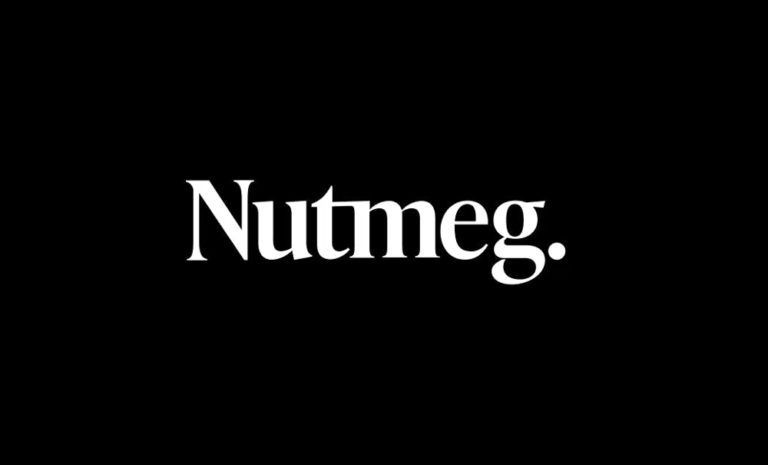Autumn Budget 2021 winners and losers
Money Talk is intended to inform and educate; it's not financial advice. Affiliate links, including from Amazon, are used to help fund it. If you make a purchase via a link marked with an *, Money Talk might receive a commission at no cost to you. Find out more here.
This week, Chancellor Rishi Sunak unveiled his Autumn Budget.
Although the bulk of the focus is on the next couple of years, the plans currently extend to well beyond the end of the current government.
There are a lot of changes in this one – some of which have been previously announced – as the government repositions towards pandemic recovery. There is also a lot of spending that won’t directly impact most people from a personal finance perspective, for example defence spending.
With this in mind, I wanted to look at some of the winners and losers from the main policies.
The 2021 Autumn Budget at a glance
From the Budget, it seems that the government is focusing on four key strategies.
The first is protecting the most vulnerable and helping them into work. This includes wide-ranging tax reliefs and financial incentives to encourage and help the unemployed into jobs, and those on low incomes to retain more benefits.
The second is a focus on stimulating the economy, led by businesses rather than consumers. A lot of tax incentives have been offered, which will likely boost profits, and there seems to be a concerted effort to get businesses to invest.
The third strategy is a focus on green economy. This is multifaceted, and includes everything from encouraging the growth of green businesses and development of renewable energy sources to enabling homeowners to decarbonise their homes.
And finally, there’s a focus on the regional economy. This means more investment in regional centres, whether it’s infrastructure or business support.
The benefits of a lot of these policies are unlikely to be felt for some time, so right now – for me at least – it’s difficult to tell just how positive this Budget is.
Winners
Low income households
Low income households will benefit from a couple of different policies.
First, there’s the increase in the National Living Wage (NLW) and National Minimum Wage (NMW).
From 1 April 2022, the NLW will increase to £9.50 an hour for those 23 and over – an increase of 6.6%, which is well above inflation.
For NMW, where the amount is tiered according to age, the increase varies but are all currently above inflation as well.
The increases will be
- by 9.8% to £9.18 per hour for 21 to 22 year olds
- by 4.1% to £6.83 per hour for 18 to 20 year olds
- by 4.1% to £4.81 per hour for 16 to 17 year olds
- by 11.9% to £4.81 per hour for apprentices
- and by 4.1% to £8.70 per hour for the accommodation offset rate
In addition, two changes to Universal Credit (UC) means that those on low incomes will get to keep more of their money if they are working – potentially by as much as they lost when the £20 a week temporary uplift ended – with the changes coming into effect by 1 December 2021.
The first change is the reduction in the UC taper from 63% to 55%, which means those on UC will be able to keep more of the money they earn compared to before.
It works out to be the equivalent of an additional 8p for every £1. If you get paid the NLW, on an 8 hour day, it would mean an additional £6.08 a day – it’s not much, but obviously does add up over a month.
The government is also increasing the Work Allowances sum – the amount that households with children or a household member with limited capability for work can earn before their UC award gets reduced – by £500 a year.
Unfortunately if you’re on UC and not working, the new policies won’t benefit you at all.
Finally, there are various support schemes for the most vulnerable specifically for winter – including the Winter Fuel Payment and Warm Homes Discount – although not all of these are new.
Students and unemployed
The work coaches first announced as part of the Plan for Jobs last year will continue. These are designed to help funnel more people into the right kinds of training to find jobs by providing tailored support.
Separately, there’s also more funding being channelled into education, specifically apprenticeships and vocational qualifications, to help more young people gain the right skills for suitable jobs.
This is coming from both sides of the equation – more apprenticeship training schemes are being introduced, with the system offering greater flexibility, while businesses are also being given greater financial incentives to hire apprentices.
Both should help to address the issue the UK currently has of the unemployed being unqualified for the jobs that are available.
High skilled immigrants (and businesses)
Lots of new schemes are being introduced to attract talent to the UK.
A new employer-sponsored Scale-up Visa, launching in spring 2022, is targeted at highly skilled people. They must have passed language proficiency tests and be earning a salary of at least £33,000.
There will also be a separate Global Talent Network – initially launching in 2022 in the Bay Area and Boston in the US, and Bengaluru in India – that’s designed to facilitate immigration for those working in key science and technology sectors. Basically talent scouts to attract highly skilled workers to the UK.
A separate Department for International Trade (DIT) Global Entrepreneur Programme will facilitate bringing “innovative, highly skilled” entrepreneurs from around the world to the UK.
Businesses
There are a few policy changes that will positively affect businesses, mainly through tax relief and affordable loans, so some expenditure/investment is needed.
The business rates multiplier will be frozen in the 2022 to 2023 financial year, meaning bills for big and small businesses will be 3% lower.
For businesses that make qualifying improvements to the property(s) they occupy, there will be a freeze on business rates for 12 months. Details are scant on how this will work but the improvements will likely need to be around green initiatives.
This will probably benefit bigger firms that own their buildings, rather than SMEs that rent their offices.
Tax relief is also being offered to businesses that invest in research and development – with the temporary Annual Investment Allowance threshold of £1 million extended to 31 March 2023. Again, this is something that will probably benefit bigger firms but may also help startups that have already secured funding.
On the loan side, the biggest is the Recovery Loan Scheme (where the government acted as a guarantor), which will be extended until 30 June 2022.
Hospitality industry
For eligible retail, hospitality and leisure businesses, there will be a temporary business rates relief in England.
Available between 2022 and 2023, the total sum is valued at £1.7 billion and will mean 90% of businesses in the eligible sectors will receive at least 50% off business rates.
With more businesses operating, there should be more and possibly even better paying jobs in this sector.
For the hospitality sector, the change in alcohol duty might help protect some jobs and create new ones as well.
Through new rates for low alcohol products, the government is hoping to incentivise new producers to enter the market. There’s separate tax relief for small producers, which should help small drinks businesses to expand into the low alcohol sector, too.
And of course, the duty on draught beer and cider will see a cut of 5%. This actually only equates to 3p per pint, even if it is the biggest cut in over 50 years.
Civil servants
Public sector pay was frozen during the 2020 Budget and, with the economy relatively back on track, the government has decided to unfreeze this.
There is no set level that pay has to increase by, though – the government says it will consult Pay Review Bodies where applicable.
Domestic flyers
Air Passenger Duty (APD) is being reduced to £6.50 per passenger for UK flights through the introduction of a new domestic APD band.
Although in theory it’s airlines that pay this levy, it’s generally accepted that the costs are eventually passed onto passengers via higher fares.
A reduction in APD should in theory mean that there will be more competitive domestic flights – potentially good for business travellers who are more likely to fly domestically, though of course not so good for achieving those carbon targets.
Drivers
The news that fuel duty has been frozen at 57.95p per litre for the tax year 2022 to 2023 will be well received by many car drivers. Obviously the price of petrol can still go up because of supply issues, as we have seen recently.
For electric car owners, there’s also good news as the government will be providing an additional £620 million of funding to install charging points in residential areas, which will make owning an electric car easier than ever.
There’s also an additional £817 million going to electric car manufacturers, which in theory should mean cheaper electric cars in future.
Green businesses
Huge allocations of funding are being directed towards various green initiatives, which include everything from decarbonisation of buildings and installation of heat pumps to green energy and Carbon Capture Usage and Storage (CCUS) schemes.
Again, this means potentially lots of new jobs in the sector, and around the UK rather than concentrated in big cities.
A byproduct of this green investment hopefully means cheaper energy bills in future.
Places outside of London
The government will be publishing its Levelling Up White Paper later this year, which will set out some of the investments it’s around the UK.
From the details that have been outlined as part of the Budget, it seems to be very much about regenerating tired regional economies and creating new community spaces.
Some of the funding will go towards developing local businesses but there’s also a focus on developing cultural assets such as museums.
The establishment of “Free Ports” should help with attracting international investment as well.
Losers
National Insurance payers
As announced in September, a higher National Insurance Contribution (NIC) will be required from just about everyone from April 2022, including those on pensions, to help fund the NHS.
The amount you pay will depend on your salary but can be hundreds of pounds more a year. As I wrote earlier this year when the news was announced, the additional tax could disproportionately affect those working in seasonal jobs.
Interestingly, the government has also introduced new powers as part of this budget.
It said: “The government will introduce regulation-making powers that would allow ministers to take decisions to provide income tax and NICs reliefs on specific expenses or benefits-in-kind in the event of a disaster or emergency of national significance.”
This isn’t necessarily a bad thing, but of course it would depend on whether those tax changes are going up or down.
Leisure travellers
Although tax on domestic flights will be cheaper, APD for long haul international flights will increase through the introduction of a new mileage band.
APD for economy flights is set at £13 for 0-2,000 miles, £87 for 2,000-5,500 miles and £91 for 5,500 miles or more. APD on business and first class seats doesn’t seem to have gone up…
Online shoppers and retailers
While no decision has been made yet, the government is currently conducting a Online Sales Tax consultation (OST), which it will publish shortly.
If an OST is introduced, the government plans to use the revenue for this to offset business rates for retailers.
This could potentially be inflationary as an OST will likely increase the cost of goods bought online while retailers are under no obligation to pass on any savings in business rates directly onto consumers. In essence, shoppers could face the squeeze from both sides.







